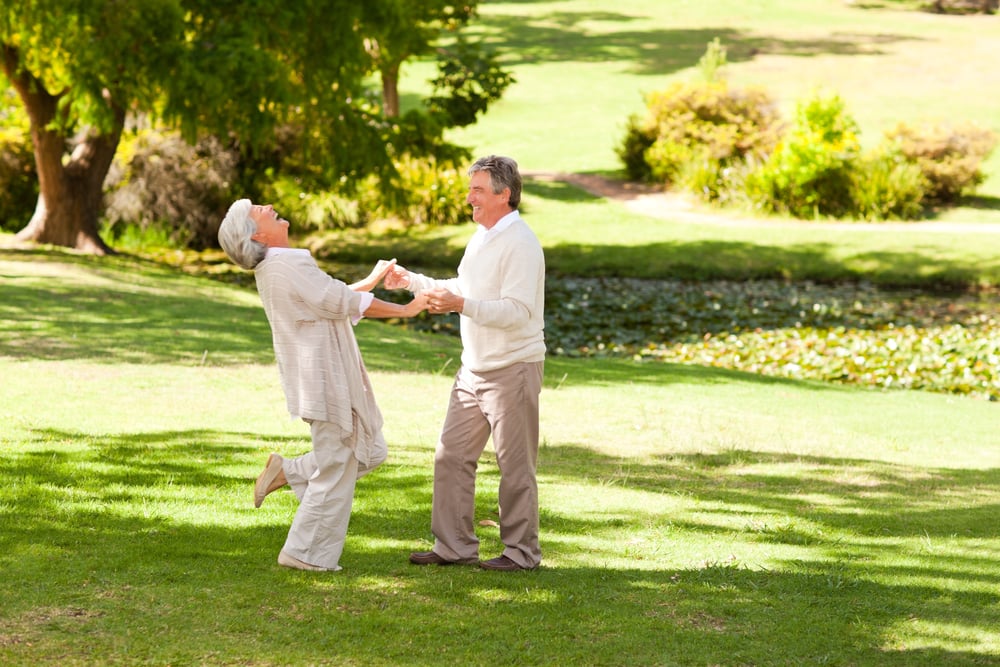Who doesn’t love music? We might disagree on favorite genres or artists, but music brings so much into our lives. For seniors, music can be especially beneficial, stimulating the mind and body and lifting spirits.
Music boosts brain power
“If you want to exercise your brain, listen to music,” advise the folks at Johns Hopkins Medicine. “There are few things that stimulate the brain the way music does.” It’s all about the science, they say. “Music is structural, mathematical, and architectural. It’s based on relationships between one note and the next. You may not be aware of it, but your brain has to do a lot of computing to make sense of it.”
For example, in one study, seniors who took piano lessons improved their focus, recall, and problem-solving skills and reported improved mood and higher overall quality of life. Just listening to new types of music can challenge the brain by making it work harder to understand the new sound. For a good musical challenge, try listening to the music your grandkids are listening to.
Music improves physical health
Music reduces the risk of cardiovascular disease. Listening to music releases endorphins, and you might know that endorphins serve as mood boosters. They do that by lowering stress and blood pressure – both of which directly improve heart health.
Music also boosts the production of nitric oxide, which works to dilate blood vessels. The American Society of Hypertension says that enjoying music for just 30 minutes a day can lower your blood pressure significantly.
Endorphins have an analgesic effect on the body, so music can specifically benefit seniors with chronic conditions such as osteoarthritis and diabetes.
Listening to music while exercising has been shown to boost performance and endurance. If nothing else, it can make exercising more enjoyable, encouraging seniors to stay strong and healthy.
Music improves mental health
Music is a tried and true pick-me-up. When it stimulates the production of endorphins, that not only benefits the heart, it reduces feelings of anxiety and depression – issues commonly faced by seniors. Music also encourages the brain to release dopamine, a neurohormone that triggers positive emotions. And the calming effects of listening to music for a half-hour can also help you sleep better.
Music improves memory
For seniors dealing with Alzheimer’s or other dementia, music can be particularly beneficial. “Music lights up emotional memories,” reports the UK’s National Health Service. They say, “there is increasing evidence that musical memory may be different to the kind of day-to-day memories that can be affected by dementia.”
So, those at any stage of memory loss can enjoy music in the present moment just for the entertainment value. But music’s ability to reduce anxiety and depression can be especially effective, helping to calm agitation. Singing along can help seniors maintain their speech and language skills. Hearing older, familiar tunes can help dementia patients tap into longer-ago memories even when the present is murky, keeping them connected with their past.
Music brings seniors together
One of the biggest challenges many seniors face is feeling isolated -- especially if they live alone and adult children and grandkids live far away. In a senior living community such as we enjoy here at Winnwood Retirement, it’s easy to get as much social interaction as you want. We have great neighbors to share activities with, and there are so many planned activities and events to take in.
Music is a part of our lives. Whether we’re dancing to oldies-but-goodies at a community event or coming together informally to sing, play instruments or listen to music, enjoying music together strengthens our sense of camaraderie.
Come join the fun!
Sharing activities we love is just one of the benefits of living at Winnwood Retirement. Could you or your Mom or Dad be our next new neighbor? Our senior-savvy staff is here to answer your questions, and we’d love to give you a tour! Don’t hesitate to contact us.




